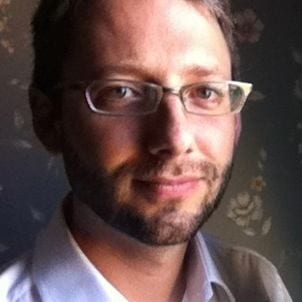Social Knowledge Timeline: Tracking and Visualizing Team Contributions
Aaron Mauro
Assistant Professor of Digital Humanities
Director of the Penn State Digital Humanities Lab
Penn State Erie, the Behrend College

Description
As our world becomes more complex, the challenges we try and solve require an every-growing team, representing diverse knowledge and skill sets. We see this across all sectors of business and government, and we actively strive to prepare our students to work in this reality. With this in mind, it can be very difficult to accurately track and assess the individual contributions of team members to the larger project. This is the challenge that Aaron Mauro is seeking to solve, focusing first on digital humanities scholarship.
Digital humanities (DH) scholarship is often a deeply collaborative and networked enterprise, one which involves multiple practitioners from a variety of academic, #altac, and non-academic contexts. Neither formalized evaluative structures nor socio-cultural understandings of value and credit have kept pace with the realities of social knowledge creation.
Irregardless of discipline, we often collaborate on any given project through a variety of digital tools. More and more, social tools, such as Facebook, provide a method to quickly update team members on specific aspects of a project. Project management and coordination tools, such as Basecamp, provide a central clearinghouse for project information and links. For more technology-oriented projects, version control tools like Subversion and Git provide an infrastructure for code storage and histories.
In recent years, start-up style collaboration techniques have become common in humanities based research teams. These techniques also produce large amounts of quantitative and qualitative data that describes the data and insights produced by a team. Subversion, SVK, and Git are important open source tools for managing a developing code base, but they also represent a highly granular source of data about how students, staff, and faculty collaborate.
Focusing on the digital humanities as a starting point, Aaron’s project provides a unique method for tracking, quantifying, and visualizing individual contributions to large, collaborative projects. The visualization takes place on a unified timeline, illustrating how teams work. Aaron has provisionally titled the tool we are developing the Social Knowledge Timeline (SKT), and we look forward to exploring how such a tool can support digital humanities work, as well as other large-scale collaborative efforts in various contexts!
The Team
Brad Kozlek – Project Lead
Nick Rossi
Jared Wenerd
Cohort
2016
Focus Area
Open Educational Resources
Theme: Quantified Self